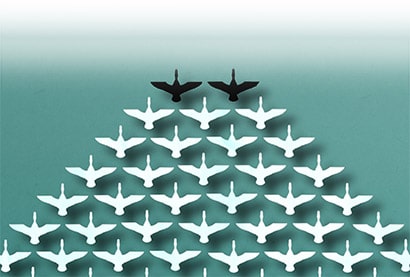Competition 2020 Bahrain
 1. What is the name of the main regulator/ regulators governing the competition law in this jurisdiction?
1. What is the name of the main regulator/ regulators governing the competition law in this jurisdiction?
The Authority for Promotion and Protection of Competition.
2. In the context of a merger acquisition in what circumstances, are the seller and/or the purchaser required to notify the competition regulator?
The relevant party, or their representative, must submit a request to the Authority to obtain approval of market concentration. Market concentration is established when there is a shift in market control by:
I. A merger of two or more undertakings, fully or partially;
II. Acquiring direct or indirect control, fully or partially, over another undertaking, by one natural person or more; or
another undertaking or more; or establishing a joint venture which undertakes all duties of a single independent
undertaking.
3. What steps will a competition regulator take if there are potential concerns around a
company obtaining a dominant market position following a merger/purchase of a competitor?
When there are potential concerns of abuse of dominant position, the Authority may initiate an investigation on its own or at the request of the relevant Minister or any serious reports and complaints.
Before starting the investigation procedures, the Authority will notify the relevant undertaking of the reasons for the
Authority's view that the violation has occurred or is about to occur.
The relevant undertaking will reply to the notice within 20 days of receiving the notice. The Investigation Committee will within six months of the date of commencement of the investigation, submit a reasoned report of its findings, accompanied with the complete investigation file.
The Authority will publish a statement with respect to the committed violation and will determine the medium and
mechanism of publishing after the final ruling or after the period of appeal has expired.
4. How would a dominant market position be derived?
An undertaking is in a dominant position where it has a market share in excess of 40% in the relevant product market. An association of undertakings is presumed to be in a dominant position where they have a combined market share in excess of 60% in the relevant product market. However, an undertaking having a smaller market share than the prescribed percentages may still be considered to be in a dominant position in the relevant product market. Additional parameters will be set by the Authority to determine if an undertaking, individually or together with another undertaking enjoys a dominant position.
5. Is it possible to appeal a decision by the competition regulator- how does this work?
An appeal against Authority decisions can be filed by any one with interest and on payment of the prescribed fee within 30 days of becoming aware of the decision. An Appeal Tribunal, established in the Authority, will adjudicate the appeals filed.
The Tribunal will hold the same legal powers vested in the Court under the law. The Tribunal's decision will be considered as a judgment delivered by the Civil High Court of Appeal. The Tribunal's final ruling is subject to appeal before the Court of Cassation. The provisions of the Civil and Commercial Procedure Law will apply with respect to submitting, examining and deciding the appeal.
6. How quickly is any decision on a competition risk as a result of a merger/company purchase normally taken?
The Authority will approve or reject the request for approval of market concentration within 90 days of the date of request.
7. What remedies are generally taken when a dominant market position is established which would a merger or acquisition?
The Inspectors, being Authority employees or others, delegated by the Chief Executive will carry out inspection duties for ensuring compliance with the Law.
8. What penalties apply for failure to follow competition law in a merger or acquisition?
To stop the violation of the Law, the Board may impose a penalty of up to 5% of the offender's daily sales. For a first time violation, the penalty will not exceed 1,000 Dinars a day and for repeat violations, within three years of the date of the decision concerning the offender's first violation, the penalty will not exceed 2,000 Dinars a day.
An administrative penalty of at least 1% and up to 10% of the total amount of sales of products for the period of the violation and for up to three years will be imposed.
9. Are there any rules governing the way a company seen as having a dominant market position must sell or market their products - which are the most important ones?
An undertaking having a dominant position in the market, will not abuse that position. The abuse of a dominant position constitutes the following:
- Directly or indirectly imposing purchase or sale prices, or other trade conditions;
- Limiting to the detriment of consumers the production or technical development;
- Applying dissimilar conditions concerning the prices and other terms of business, in contracts and agreements entered with suppliers or consumers;
- Concluding a contract concerning a certain product, subject to acceptance of obligations not having any link to the subject of the original contract or agreement;
- Refraining, with no legitimate reasoning, from concluding purchase or sale contracts with any undertaking, or selling products at a lower price than their actual cost, or completely suspending transactions with the intention of eliminating competing undertakings from the market, or cause damage which will avert the undertakings continuing their businesses.
10. What are the penalties for failure to apply competition rules when selling or marketing products?
The Board will impose a penalty of up to 5% of an offender's daily sales of products. For a first time violation, the penalty will not exceed 1,000 Dinars a day and for repeat violations, within three years from the decision date concerning the offender's first violation, the penalty will not exceed 2,000 Dinars a day.
An administrative penalty of at least 1% and up to 10% of the total amount of sales of products for the period of the violation and for up to three years will be imposed.
 11. Are there any rules which prevent companies from colluding with competitors in the market when setting prices?
11. Are there any rules which prevent companies from colluding with competitors in the market when setting prices?
Under Article 3 of Bahrain Law No. 31/2018, arrangements with the object or effect of hindering competition in Bahrain are prohibited. The Law, in particular, prohibits colluding in bids or proposals concerning the tenders, auctions, or practices and influencing proposed purchase or selling price of products.
12. What are the penalties for colluding with competitors?
Where the undertaking conducts the anti-competitive practice, the Board will impose a penalty of up to 5% of an offender's daily sales of products. For a first time violation, the penalty will not exceed 1,000 Dinars a day, and for repeat violations,within three years of the decision date concerning the offender's first violation, the penalty will not exceed 2,000 Dinars a day.
An administrative penalty of at least 1% and up to 10% of the total amount of sales of products for the period of the violation and for up to three years will be imposed.
13. Are there any rules governing the way a company seen as having a dominant market
position as related to one product is able to sell or market other products?
There are no specific rules as the rules laid down are for a company having a dominant market position in general.
14. Are there any specific industries, which have particular competition rules? Give examples of some of the main ones- and the legislation governing this regime.
Article 2 of Bahrain Law No. 31/2018 specifies its application. It will apply to:
- All undertakings that carry out their economic activities in Bahrain;
- Any arrangement or conduct which is intended to or results in anti-competition in Bahrain, even when the party or parties are not established in Bahrain; and
- Economic activities conducted extra territorially, yet affecting competition in Bahrain.
The Law will not apply to:
- Arrangements approved by international conventions which apply in Bahrain;
- Facilities and projects owned or controlled by the State; and
- Arrangements necessary for the use, exploitation, transfer, assignment, or license of Intellectual Property rights; provided these arrangements do not unreasonably hamper the competition or transfer and dissemination of technology.
15. Do the free zones have a different competition regime from mainland?
No. The businesses operating in Bahrain Free Zone must also comply with Bahrain Law No. 31/2018 with respect to the Competition Promotion and Protection.
 16. Are there any industries in which only state or public owned enterprises are allowed to operate? Give the main examples.
16. Are there any industries in which only state or public owned enterprises are allowed to operate? Give the main examples.
Any private investment (foreign or Bahraini) in the petroleum extraction is allowed only under a production-sharing agreement with the Bahrain Petroleum Company (BAPCO), the state-owned petroleum company.
The Industry, Commerce and Tourism Ministry maintains a small list of business activities which are restricted to Bahraini ownership, including press and publications, Islamic pilgrimages, clearance offices and workforce agencies.
17. Are there any industries where fixed/state regulated pricing must apply? Give the main examples.
The prices are fixed under Bahrain Decree-Law No. 18/1975 with respect to Fixing Prices and Control. It was amended by Bahrain Decree-Law No. 11/1977.
18. What restrictions govern the inclusion of non-compete clauses in employee's contracts?
The non-competition restriction is valid only if the employee is 18 at the time the contract was concluded.
 Русский
Русский
 English
English 官话
官话 português
português عربي
عربي
 Türk
Türk 






.jpg)
















